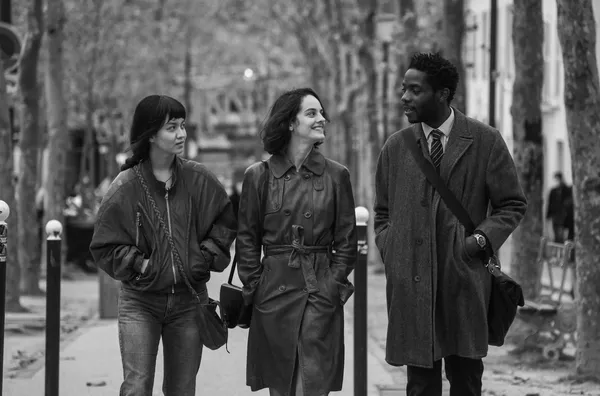Eye For Film >> Movies >> Paris Is Burning (1990) Film Review
Paris Is Burning
Reviewed by: Jennie Kermode

Numerous studies have shown that having the opportunity to express oneself is important to good mental health. So is being able to feel attractive. So it's tough to grow up as a feminine man or trans woman of colour in a society that historically punishes male expressions of femininity and holds up whiteness as the ultimate beauty standard. It's even tougher if you're poor and can't afford the clothes, make-up or surgery necessary to make yourself look fabulous. The ball culture explored in Jennie Livingston's historic documentary was a means of fighting back for people in this predicament. It's a culture that still exists, but Paris Is Burning captured it in its heyday.
This is a controversial film, and it's not hard to see why. Setting aside the usual protests from primly religious types worried by anything outside the norm, it's innately problematic as a view of African American and Latino culture directed by a white woman, and as take on queer and trans lives seen through a cisgender gaze. As such, it misses some important nuance and at times verges on exploitation; though Livingston seems to work hard to show respect, she is distracted by what to her is sensational, potentially depriving it of its political charge. There were also disputes over contributor pay. Yet to bring this to the screen at all, back in 1990, was quite a feat, and would probably have been impossible for anyone facing as much prejudice as the members of the ball community itself. The awards it won were early shots in the cultural battle that ultimately saw Moonlight taking home a best Picture Oscar.

The film is structured around interviews with celebrated figures like Pepper LaBeija and Angie Xtravaganza, intercut with footage from the balls themselves. Although this is essential to capturing the mood, it has a limited impact where it's focused on simple feminine glamour, and time has depleted this further as drag now has a much higher public profile. Where it gets interesting is where it explores wider issues through themed events, such as a competition built around businessman chic which emphasises the impossibility of becoming a real life senior executive when hailing from the slums. The clothes on display are generally home made or stolen, yet the latter are worn with considerably more flair than those who have acquired them in the conventional manner are ever likely to display.
Flair and verve are what it's all about, a fierce confidence used to defy white power structures since the original days of putting on the Ritz. Those at the top of the style hierarchy have got there less through their looks than through natural charisma or sheer determination. The mother of each house cares for her assortment of less experienced performers and newcomers, but is often harsh, forcing them to develop the sharp aesthetic they will need to become winners and the self-reliance they will need to cope with life beyond the runway. For many, the houses are the only family they have, having been rejected by their parents and forced to live in desperate circumstances.
If one is poor but glamorous, there is always sex work. The film's honesty about this, another taboo area, has endeared it to many in the trans community, as it helped to expose the way that a society that pushed trans people of colour to the margins also lusted after them in secret, compounding their vulnerability. Here, Venus Xtravaganza speaks at length about what sex work means to her. Her murder is referenced only in passing, but this arguably gives it more weight. We see her personality, we see her talent, and we see how easily she was snuffed out with wider society barely noticing.
A film about resistance, passion and the determined reclamation of cultural space, Paris Is Burning has been tremendously influential, and is essential viewing for any student of the issues it concerns or of the documentary form. Its failings provide a secondary layer of interest and its successes shine a light on a vital creative movement that ultimately forced many Americans to reassess their understanding of their country, even if few of those who did the hard work are still alive to take the credit.
Reviewed on: 02 May 2018















